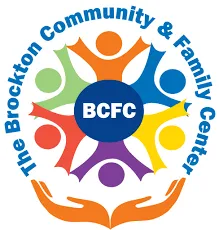Our Blog
Heart of a Giant Foundation
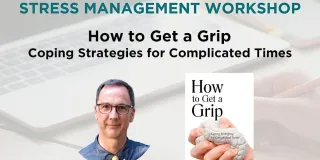
Online Workshop: Coping Strategies for Complicated Times
We at Heart of a Giant are delighted to invite you to a Stress Management Workshop led by Milton resident Dave Bullis, PhD. ...more
Event
March 27, 2024•1 min read
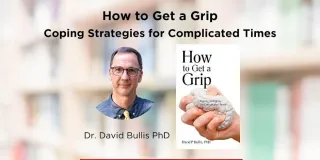
Book Presentation: Coping Strategies for Complicated Times
We at Heart of a Giant are delighted to invite you to our Milton neighbor, Dave Bullis, Ph.D. Book Presentation titled "How to Get a Grip: Coping Strategies for Complicated Times." ...more
Event
March 27, 2024•1 min read
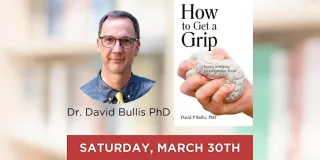
Online Book Presentation: Coping Strategies for Complicated Times
Book Presentation: How to Get a Grip: Coping Strategies for Complicated Times, by Dave Bullis, Ph.D. ...more
Event
March 27, 2024•1 min read

Let's Catch up with Heart of a Giant: 6 Month Post-Transplant
This is an exciting opportunity to hear about the patient journey of a survivor of heart disease. Come hear his story and be inspired ...more
Event
March 27, 2024•1 min read
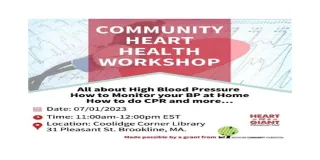
Community Heart Health Workshop: All about High Blood Pressure
An in person workshop that covers how to monitor your blood pressure at home and perform CPR. ...more
Event
March 26, 2024•0 min read

Navigating Heart Disease as a Caregiver or Family Member Live Webinar
Navigating care for a heart disease patient is filled with mixed and varied emotions that can leave one emotionally, physically, and cognitively exhausted ...more
Event
March 26, 2024•1 min read
Testimonials

Elaine G
★ ★ ★ ★ ★
Thank You for all you do for us at the Center ❤️.

Karen, Dana-Farber/Harvard Cancer Center
★ ★ ★ ★ ★
On behalf of the Bethel AME Allied Health Ministry and Next Gen Ministry, we would like to express our gratitude for your role in planning and participating in yesterday’s Go Love/Go Red Sunday. We were thrilled at the turnout and engagement of our congregants and even more excited about the education and awareness provided by Heart of a Giant members. As we all know, knowledge creates awareness, which leads to action.
Thanks for sharing your time, talent, and treasures.

Luz, Boston Age+ Strong
★ ★ ★ ★ ★
First, thank you all for today's presentation. All the Seniors loved the presentation. It was very informative, and they learned a lot about the history of blood pressure and Cardiovascular health. I am very grateful to the entire team for your help, time, support, and the great lunch.

Luz, Boston Age+ Strong
★ ★ ★ ★ ★
First, thank you all for today's presentation. All the Seniors loved the presentation. It was very informative, and they learned a lot about the history of blood pressure and Cardiovascular health. I am very grateful to the entire team for your help, time, support, and the great lunch.
The Heart of a Giant Foundation, Inc. is a 501(c)(3) nonprofit organization, EIN 84-2900386. Donations are tax-deductible.






















